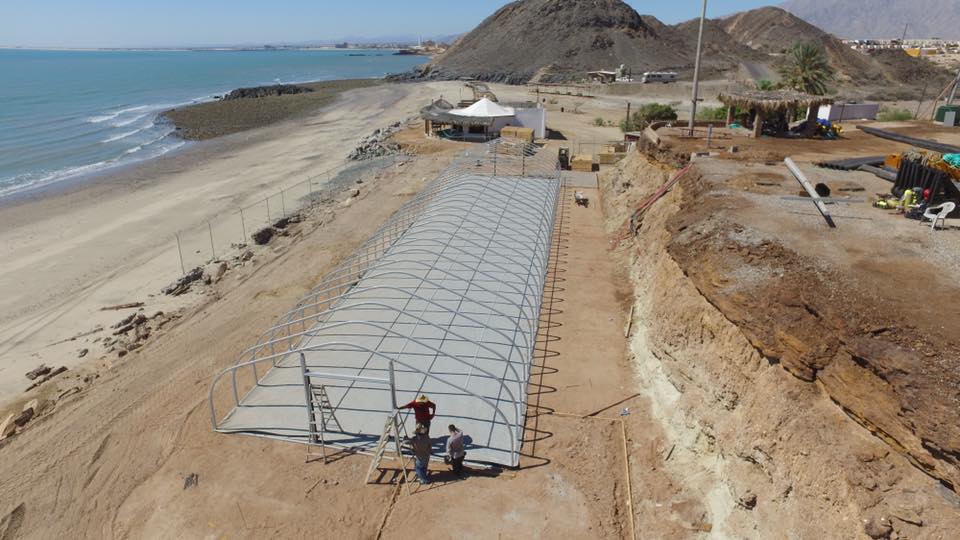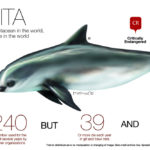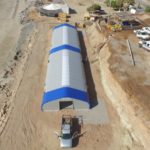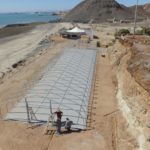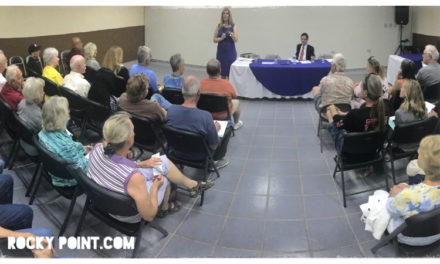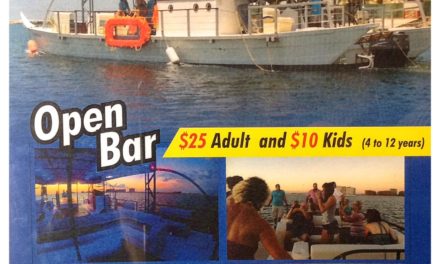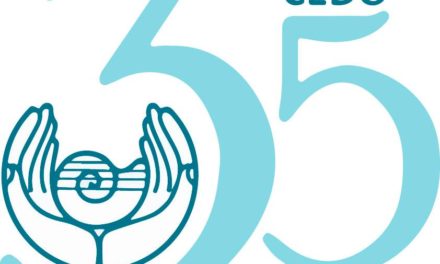With less than 50 Vaquita Marinas left in the wild, the ‘little sea cow’ is one of the most endangered mammals on the planet.
West of Rocky Point in San Felipe, a ‘Vaquita Recovery Center’ is being built under the direction of Vaquita CPR. The center is part of a plan to save the species from extinction.
The Vaquitas’ environment is in and around the once healthy Delta where the Colorado River empties into the Sea of Cortez. Dams built in the western US diverted the fresh water that was needed to maintain this ecosystem. Over time, the thriving land and ocean environments were severely damaged, as the water was used for agriculture and drinking water for the Western US. Recently, their have been attempts to allow the Colorados’ waters to reach the ocean, and replenish this near wasteland. It remains to be seen if this will become consistent enough to have a positive effect.
The remaining Vaquitas are protected, but vulnerable to illegal fishing. Gilnets are used to fish for the Totoaba. This large fish is another endangered species that commands a high price on the black market. Gilnets left behind are a hazard to the Vaquita and many other species, who are caught and then die in them.
The US Navy Marine Mammal Program will be involved. Trained dolphins will be used to locate the notoriously shy and hard to find Vaquitas. The plan involves the capture and relocation of the Vaquitas to holding tanks. The Mexican Navy, Sea Shepard Institute, and SEMARNAT, Mexicos’ Environmental Agency, will work to remove the Gilnets from the Protected area here in the north of the Sea of Cortez. Once the area is cleared, the Vaquitas will be returned to their home in the ocean. Tracking devises will help maintain contact with the dolphins.
The center is being constructed currently in San Felipe, Mexico.
Most of the northern portion of the Sea, stretching from Baja across towards Puerto Peñasco, is now a Reserve to protect the Vaquita and the Totoaba. As a result, families in the area have been restricted from fishing. The economic hardship imposed on the area has resulted in demonstrations.
The capture of the Vaquitas will begin this Fall.
Story by Richard Scott for RockyPoint.com photos courtesy of National Marine Mammal Foundation
- Infographic by Memuco




